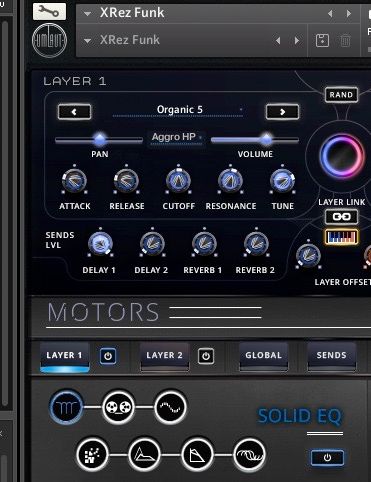Umlaut Audio's Motors is a dual-layered, loop-based VI with an abundance of features. The company designed it for film and game composers alike, in a bid to create an engine that could make finding the right rhythm and tone as easy as riding a bike. But have they succeeded?
In a word, yes. At the core of Umlaut Audio's Motors are its two 'Layers', each of which can be worked with on its own, or they can be linked as a pair. On each layer, there are a series of functions, and a mass of sonic options at your fingertips. You have your attack, release, cutoff, resonance, and tune, plus two reverbs and delays per layer, but it all gets much deeper than that.
There is a great EQ, plus tape saturation and distortion effects; a compressor; and transient, lo-fi, and modulation options, all of which are endlessly tweak-able, because of all of the options within options: within each preset, there are no less than 20 'Processed' and 60 'Organic' variants of that individual sound. So, a lot! I guess if there is a downside to this VI – which there really isn't – it might be that there are so many options, you don't quite know where to start, or to stop, for that matter, so if you're taking Motors into a session, be prepared not to come up for natural light for some time.

